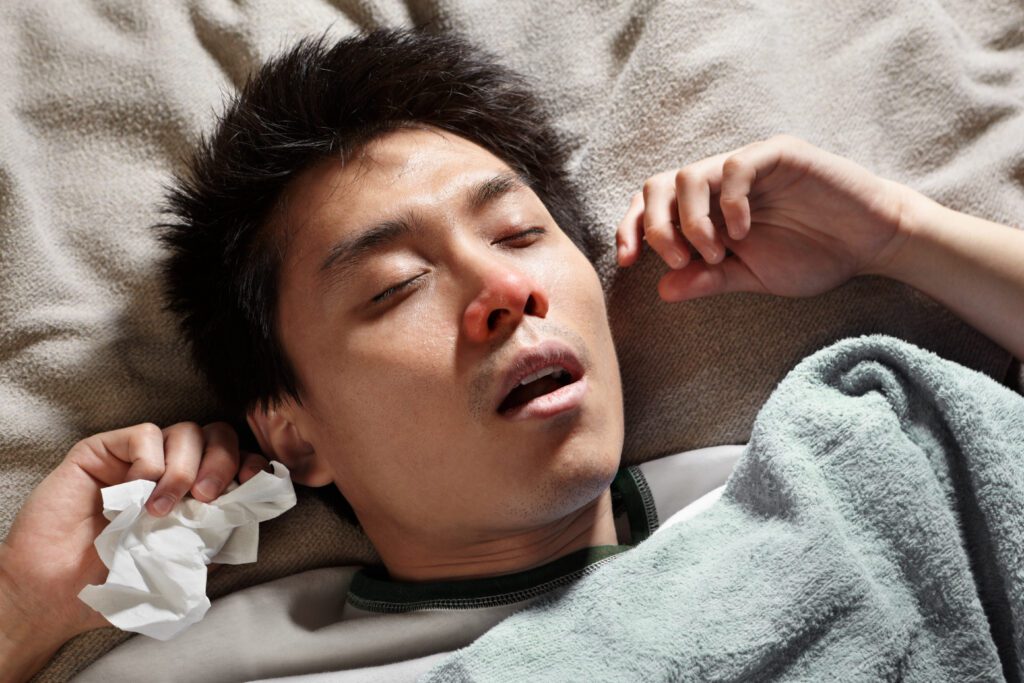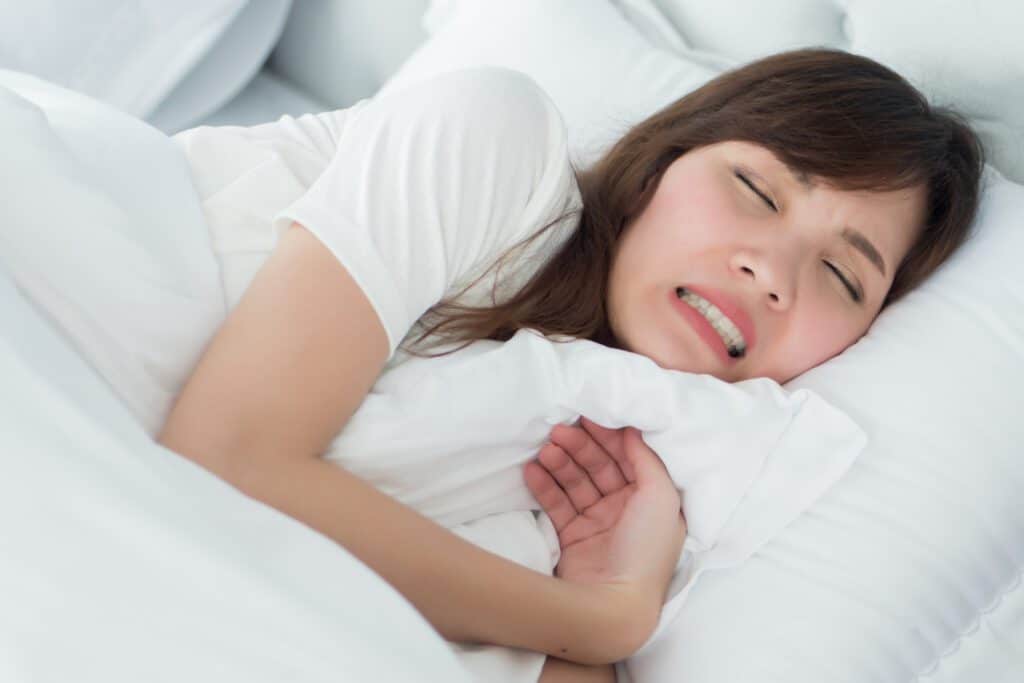Breathing through the mouth, especially while asleep, has a poor reputation. “Mouth breather” is usually used as a derogatory term, even though the act is often unconscious. Why is there such a reputation surrounding breathing through the mouth? Can mouth breathing affect health negatively? The short answer is yes.
Mouth breathing—even only when you are asleep—can be a serious oral health issue. It has a snowball effect that can cause serious problems in the mouth, jaw, and sinuses. Though breathing through the mouth may seem like a small issue, the ramifications are large. Those who breathe habitually through their mouths, even if it is only during sleep, should take steps to correct the issue early on.

Can Mouth Breathing Affect a Person’s Health?
Breathing is breathing, right? Why should it matter whether it happens through the nose or the mouth? While the concept may initially seem odd, mouth breathing affects teeth, lungs, and the quality of inhaled air for the worse. Nasal breathing is better for preserving healthy teeth and lungs.
Why is this? Why does mouth breathing affect health so negatively? Breathing through the nose ensures that the air we breathe is filtered and free from allergens and dust before it reaches the lungs. It also boosts oxygen consumption. On the other hand, breathing through the mouth dries out the mouth because it requires more saliva. Dry mouth leads to much worse conditions than just chapped lips.
Mouth breathing may be the result of a number of conditions. In children especially, the practice is commonly the result of allergies, tonsillitis, or swollen adenoids. At such a young age, it is easy to make breathing through the mouth a habit, leading to negative consequences throughout their lives. However, if the problem is addressed early, you can reverse how mouth breathing affects your health.

What Are the Signs of Mouth Breathing?
It can be difficult to know if you breathe through your mouth when asleep for the simple reason that you’re unconscious. However, the symptoms can be indicative. Snoring, headaches, and poor sleep quality are just the tip of the iceberg. Halitosis (chronic bad breath), crowded teeth, bruxism (grinding the teeth), chapped or dry lips, gingivitis (inflammation of the gums), tooth decay, and cavities are common.
Breathing through the nose facilitates the correct development of the upper airway and associated skeletal and dental structures. Mouth breathing does not provide such a benefit and can lead to myofascial pain, malocclusion, impacted teeth, tooth erosion, joint disorders in the jaw, and periodontal disease. Because breathing through the mouth dries out the mouth, it can change saliva acidity levels and alter oral pH balance, resulting in a more corrosive environment for teeth and consequently tooth decay and gum disease
Mouth breathing affects more than just teeth. It can also lead to enlarged tonsils and adenoids and an increased risk of sinus and ear infections. People who breathe through their mouths are at greater risk of colds and of pain in their teeth, jaw, ears, and neck.

How Do You Fix Mouth Breathing?
Those who struggle with mouth breathing should not despair. Yes, mouth breathing affects teeth negatively, but breathing through the mouth is a habit, and like other habits, it can be broken. If the practice is corrected early, it is possible to reverse its effect on teeth.
Though the initial correction can be difficult to achieve, with concentrated practice, mouth breathers can change the way they breathe, even when unconscious. Start with making it a goal to breathe through your nose during the day, when you can concentrate on doing so. Make sure your nose is clear and cleaned.
Sometimes mouth breathing is a result of nasal congestion, symptoms of allergies, the flu, or the common cold. In such cases, a physician may recommend nasal decongestants, antihistamines, and nasal sprays. These can help clear the nose so you can breathe naturally. Even without the presence of hay fever or cold, you may need to consult an ENT specialist to discover why breathing through the nose is a challenge for you.
To facilitate nose breathing at night, you may need to adjust the level of your pillow, propping it up to allow for more free airflow. If you struggle with mouth breathing, work with your dentist to find a solution.
